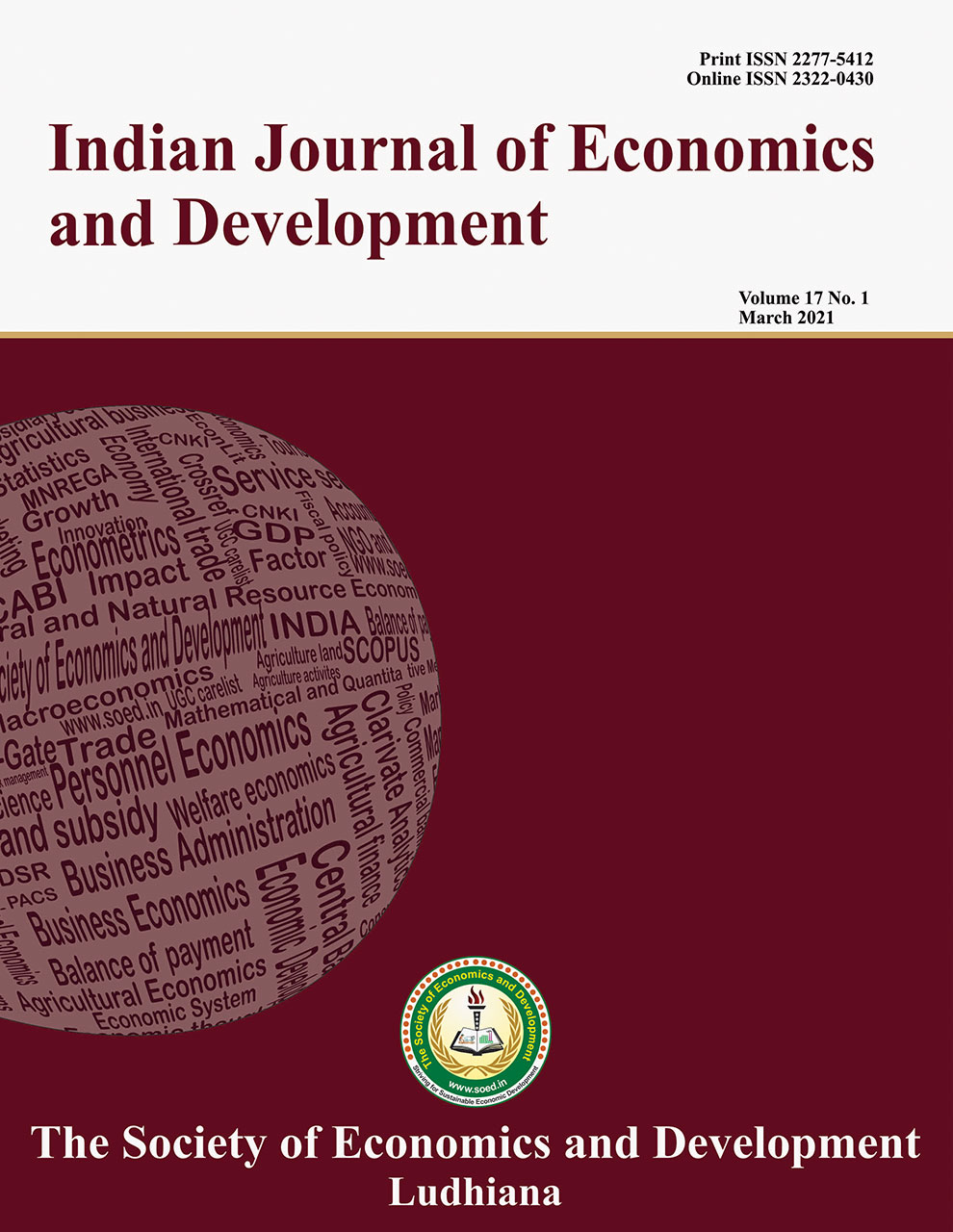Determinants of Water Conservation Practices in Rainfed Agriculture: An Empirical Analysis from an Eastern Indian State

Price: ₹ 500
Author: Manas Kumar Mohapatra and Himanshu Sekhar Rout
Author Address: Department of Analytical and Applied Economics, and Department of Analytical and Applied Economics and RUSA Centre of Excellence in Public Policy and Governance, Utkal University, VaniVihar, Bhubaneswar-751004 (Odisha)
Keywords: Natural resource management, rainfed agriculture, water conservation practices
JEL Codes: O13, Q15, Q25
Abstract
The present study attempted to determine the determinants of the water conservation practices in rainfed agriculture, especially in the watershed program Keonjhar district of Odisha state in the eastern part of India. Primary data were collected by a multi-stage random sampling method. The sample size was 125 households, and information was collected by canvassing a pre-designed schedule to the head of the households through door-to-door interviews. Focus group discussions were conducted to get qualitative information. A probit binary model was applied for analysis. The factors like awareness of the farmers, participation, the share of agriculture income to the total income of the household, the slope of agricultural land, access to information were positively influenced the water conservation practice. In contrast, the caste of SC / ST household and distance of agricultural land negatively influences soil water conservation practices. The results revealed that better awareness with the active participation of people in the government program could neutralize the influence of socio-economic factors in the adoption of soil water conservation practices.
Description
Indian Journal of Economics and Development
Volume 17 No. 2, 2021, 289-297
DOI: https://doi.org/10.35716/IJED/20229
Indexed in Clarivate Analytics (ESCI) of WoS
Scopus: Title Accepted
NAAS Score: 5.15



